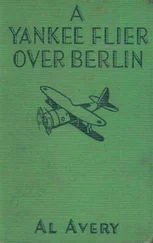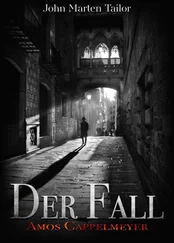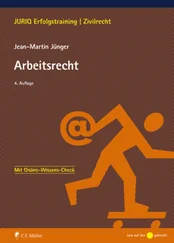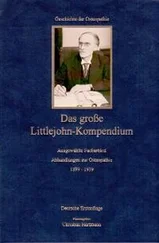I had found myself thinking about Adelaide quite a lot, as you can imagine◦– I later learnt that she did not receive news that I was still alive, inside a prisoner of war camp, until quite a while after I had been shot down. I would always be excited on the rare occasion a letter got through but, for whatever reason, we only received one or two letters from each other during the whole time. I was extremely glad to get the first and pleased to know that she was still thinking of me and hadn’t written me off.
Sadly, that happened quite a lot, even married chaps had news come through that their wives had gone off with somebody else. They were referred to as Dear John letters; I think the term originated from the POW camps. They were devastated. You have nothing and then that letter arrives. They just had to cope with it; like a lot of other things. You tried to help them along but some of them took on a bitter attitude. It must have been terrible news for them.
I can remember another letter from Adelaide’s younger sister, Barbara, which gave me some idea what was happening back at Husbands Bosworth. Although only twelve-years-old she managed to conceal meaning in her ‘innocent’ letter. I guessed that her words ‘It’s all quiet on the Sulby Road as usual’, must surely mean the opposite and that meant the Wellingtons must still be roaring overhead and the Drome was still training aircrew. I knew that, ever since the Drome was opened, the aircraft noise on Sulby Road was continuous and deafening and therefore it could not possibly be ‘usual’ for it to be quiet. This was a small, but welcome psychological boost for someone isolated from Churchill’s battle roar.
*
Prisoners were also allowed a personal parcel. I think this was only every three months, and even that was not maintained◦– not because they were not sent out by relatives regularly, but they did not arrive. While the Germans were not suspected of pilfering them◦– they were quite honourable in some things – the parcels came indirectly, via a neutral country, so it would be difficult to say where or how they went astray.
Cigarette parcels, which could be sent more frequently, fared even worse. They too came indirectly, but, being smaller, were probably easier to pilfer. You might say now, knowing about the dangers of smoking, that was a good thing, but in those days we were led to believe that smoking was good for you, as it calmed the nerves and helped a person think more clearly, and that it was a great social asset. Consequently, probably nine out of ten men smoked, including me, and quite a lot of women. In a prison camp, cigarettes took on a whole new dimension, they were currency, so the few non-smokers and the lucky ones who fared a bit better with their cigarette parcels, such as the Canadians, could buy things from other prisoners. I must say at this point, the Canadians were always generous to their hut mates and I enjoyed many a packet of Sweet Caporal cigarettes; they were a great morale booster when times were especially bad.
Cigarettes could be earned in the more prosperous times by a few prisoners who were talented in drawing and, by using a photograph as a guide, could produce a portrait in pencil. Some were remarkably talented and I sometimes wonder if any of them ever became professional artists later in life. The number of items that were bought and sold for cigarettes was never large and became almost non-existent as 1944 wore on, when even the Canadian parcels were not coming through.
Bread was never on sale within the camp◦– that was priceless◦– but there were contacts from outside where a loaf could be bought. I did hear that one of the guards was involved, but it would have been pointless trying to find out more without having the means to carry the deal through, and it was also very risky.
It was years after my POW days before it occurred to me what a lot of clever work was done by our Camp Leader and his aides in obtaining items and the services of people from the outside. It all had to be thought through very carefully because of the risk of counter intelligence. For example, maintaining the secret radio would require a supply of spare parts and batteries, but if the wrong person was contacted to supply them it could get back to the Germans which would confirm that there was a radio in the camp and probably reveal its hiding place.
Many things would have to be secretly obtained towards an organised escape bid◦– clothing, train timetables and much general information about the locality. This could only have been done with bribery and the only thing these clever, dedicated people had to use for that purpose, to my knowledge, would come out of the Red Cross parcels. Cigarettes, chocolate and real coffee I imagine would be very tempting to the Germans as they endured severe austerity in that sort of thing. Perhaps some of the goods had to be first exchanged for Reichsmarks before the objective could be achieved. Whatever had to be done was for the good of us all, and this group of courageous people, the Escape Committee, the name they were known by in all Stalag Lufts, should have had special recognition when they returned home to their various countries; I don’t think they did.
*
I had been in K6 some weeks, when at around 5am, guards burst into the hut and ordered everyone out. That meant dressed in whatever we usually slept in. It was still very cold at that time of the morning, despite the improving temperatures by day, and we were kept standing there for some considerable time. It would become obvious in a short while that others in the hut had guessed what this was all about, but nothing was said. Eventually we were ordered back inside the hut. I happened to be one of the first back in, so got a front seat you might say, to see all that took place.
Right in the lead, with his own personal guard, was Jock, our Room Leader, and he was escorted into the small room where the night latrine was housed. Jock, like the Camp Leader, did not have to shout to make sure everybody knew he was in charge. He was a quiet mannered Scot, who on first acquaintance might appear dour, but look more carefully and there was always a hint of humour in his eyes. He did everything quietly and efficiently and was accepted by all without question.
I could see when I got to the door of the latrine room that nearly all the space was taken up by a group of sinister looking civilians. I immediately thought, ‘These are Gestapo’, as they were dressed in long black overcoats, trilby hats, with the brim turned down front and back, and leather jack boots. Although concealed, a bulge in their coats revealed that they were armed with pistols; they appeared almost exactly like the Gestapo were portrayed in the films shown at my local cinema back home.
The latrine drum had been pushed to one side and a paving slab had been removed to reveal a neat hole, a bit smaller in area than the slab. It was obviously a shaft leading to a tunnel below. I had no knowledge of the tunnel, but I hadn’t long joined the hut and those working on it would never have told of its existence because they weren’t really sure who I was; I could have been a German plant for all they knew.
Jock had been hustled into a position by his escort to stand on one side of the shaft so that he was facing a man who must have been the senior Gestapo officer. The German took his time to stare at Jock before he almost screamed out the question, ‘And what is the meaning of this?’ thrusting a finger at the hole. Jock, unaffected by his attitude, did nothing for what seemed an age, and just stood and stared into the hole feigning surprise and disbelief. Next, Jock moved around the hole 90 degrees, and from his new position, stood with a puzzled look studying the hole with disbelief, for what seemed another age of time. The Gestapo man became even angrier, made visible by his face becoming redder by the second, until it seemed he was about to explode.
Читать дальше












